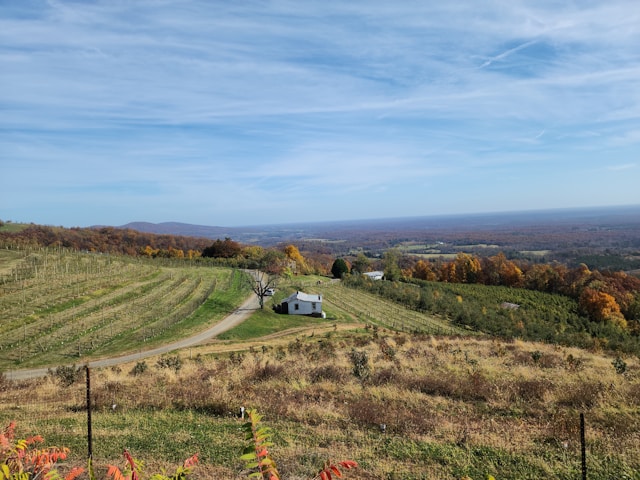Charlottesville, VA, a city known for its rich history, vibrant culture, and picturesque landscapes, has become a popular destination for tourists and visitors. This surge in popularity has led to a growing interest in short-term rentals, often facilitated through platforms like Airbnb.
However, with this increase in short-term rental activity, the city has implemented specific regulations to manage and oversee these accommodations. This blog post delves into the current state of Airbnb regulations in Charlottesville, VA, providing insights and resources for property owners and investors.
Overview of Short-Term Rentals in Charlottesville
Short-term rentals (STRs) refer to the leasing of residential properties for periods typically less than 30 days. These rentals can range from entire homes to individual rooms within a property. Platforms like Airbnb, VRBO, and HomeAway have made it easier for property owners to list their spaces and for travelers to find unique accommodations. In Charlottesville, the popularity of STRs has been driven by its proximity to the University of Virginia, numerous wineries, and historical attractions.
Regulatory Framework
Charlottesville has established a regulatory framework to balance the benefits of short-term rentals with the need to maintain neighborhood integrity and ensure the safety and well-being of residents and visitors. The regulations are designed to address concerns such as noise, parking, and the impact on long-term housing availability.
Zoning Requirements
In Charlottesville, short-term rentals are subject to zoning regulations. The city is divided into various zoning districts, each with specific rules regarding the use of residential properties for short-term rentals. Property owners must ensure that their listings comply with the zoning requirements of their district.
- Residential Zones: In most residential zones, short-term rentals are allowed but may require a special use permit. This permit process involves a public hearing and approval by the city council.
- Commercial and Mixed-Use Zones: STRs are generally permitted in commercial and mixed-use zones, subject to specific conditions and requirements.
Top 100 Airbnb Rental Markets

Instantly compare top 100 short-term (Airbnb) rental markets in the US
Permitting and Licensing
To operate an Airbnb in Charlottesville, property owners must obtain the necessary permits and licenses. The process typically involves:
- Business License: All short-term rental operators must obtain a business license from the city.
- Short-Term Rental Permit: In addition to a business license, a specific short-term rental permit is required. This permit ensures that the property meets safety and health standards.
- Special Use Permit: In certain zoning districts, a special use permit may be necessary. This involves an application process, a public hearing, and city council approval.
Occupancy Limits and Safety Standards
Charlottesville enforces occupancy limits and safety standards to ensure the well-being of guests and residents. Key requirements include:
- Occupancy Limits: The number of guests allowed in a short-term rental is typically based on the number of bedrooms and the size of the property. Overcrowding is prohibited to prevent disturbances and maintain safety.
- Safety Standards: All short-term rentals must comply with safety regulations, including the installation of smoke detectors, carbon monoxide detectors, and fire extinguishers. Additionally, properties must meet building code standards.
Taxes and Fees
Short-term rental operators in Charlottesville are required to collect and remit applicable taxes, including:
- Transient Occupancy Tax: A tax levied on guests staying in short-term rentals, similar to the tax imposed on hotel stays.
- Sales Tax: Operators must also collect and remit state and local sales taxes on rental income.
Enforcement and Penalties
Charlottesville has established enforcement mechanisms to ensure compliance with short-term rental regulations. The city conducts regular inspections and investigates complaints related to STRs. Non-compliance can result in penalties, including fines and the revocation of permits and licenses.
Resources for Property Owners and Investors
Navigating the regulatory landscape for short-term rentals in Charlottesville can be complex. Property owners and investors can access various resources to ensure compliance and successful operation of their Airbnb listings:
- Charlottesville City Website: The official city website provides comprehensive information on zoning, permitting, and licensing requirements for short-term rentals. Charlottesville Government.
- Planning and Zoning Department: The city’s Planning and Zoning Department offers guidance and assistance on zoning regulations and the permit application process. Charlottesville Planning and Zoning.
- Business License Division: For information on obtaining a business license, property owners can contact the Business License Division. Charlottesville Business License.
- Local Realtors and Property Management Companies: Local real estate professionals and property management companies can provide valuable insights and services to help navigate the short-term rental market in Charlottesville.
Conclusion
Operating a short-term rental in Charlottesville, VA, offers significant opportunities but also comes with regulatory responsibilities. Understanding and complying with the city’s regulations is crucial for maintaining a successful and legal Airbnb operation. By staying informed and utilizing available resources, property owners and investors can contribute to the vibrant short-term rental market in Charlottesville while ensuring a positive experience for guests and neighbors alike.


